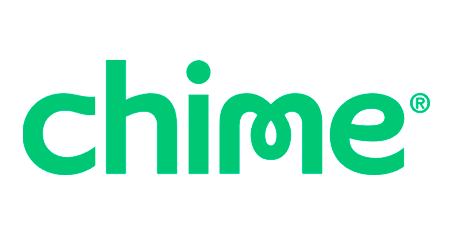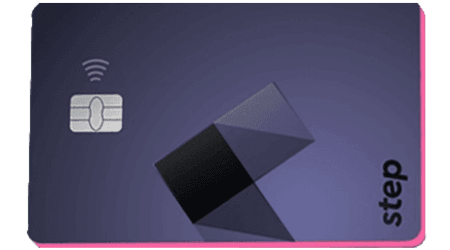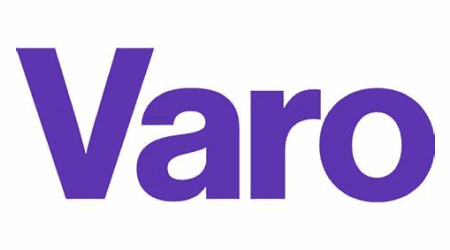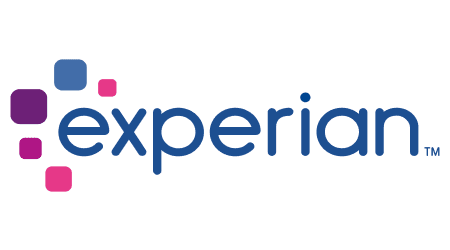Key takeaways
- Credit-building debit cards offer a safe way to build positive credit history.
- These cards don’t require credit checks or charge annual fees.
- They’re ideal for young adults or new borrowers looking to build credit.
- There’s a lower risk of accumulated debt compared to traditional credit cards.
How do credit-building debit cards work?
Credit-building debit cards, like the Extra debit card, are like a debit and credit card hybrid. They’re basically an alternative secured credit card but with a different security deposit and additional benefits.
Unlike traditional secured credit cards, which rely on a security deposit that sets your credit limit, credit-building debit cards are secured by a linked bank account, with the card’s credit limit determined by your account balance. When you use the card, the amount is borrowed and later paid back from your linked account balance. These payments are reported to the credit bureaus to help you build a positive credit history.
Most credit-debit cards don’t require a credit check and don’t charge annual fees or an APR like a traditional credit card. They might also come with extra perks like rewards or savings features.
Featured credit-building cards
9 cards that build credit
1. Step Visa Card
Step Visa Card
Finder score
Step is a mobile-first banking app with a free credit-building secured card. Step helps to build credit by automatically paying off balances each month with funds held in the attached deposit account and reporting it to the credit bureaus. There's also no credit check, no APR or monthly fees. Similar to other secured cards, the Step Card only allows you to spend up to the amount in your deposit account.
Minors can also build credit with Step, though they won't start building credit until they turn 18 years old and opt in to it. Once they opt in, the last two years get reported to the three major credit bureaus.
| APY | 5.00% |
|---|---|
| Fee | $0 per month |
| Minimum deposit to open | $0 |
| APY | 5.00% |
|---|---|
| Fee | $0 per month |
| Minimum deposit to open | $0 |
2. Chime Credit Builder card
Chime® Credit Builder Secured Visa® Credit Card
Finder score
Chime is a fintech company with banking services through its partners, The Bancorp Bank, N.A. and Stride Bank, N.A. Chime offers many banking products, including its Credit Builder card, which is a secured credit card. While not an actual debit card, it has no credit check, no annual fees or APR. You must move money from your Chime account over to the Credit Builder card to determine the spending limit — similar to a security deposit requirement with other secured cards. When you use the card and pay off the outstanding balance, the payments are reported to all three credit bureaus: Experian, Equifax and TransUnion.
The Credit Builder card is designed to link with the Chime Checking Account, so to qualify, you must have a Chime Checking account and make qualifying direct deposits of at least $200.
| Fee | $0 per month |
|---|---|
| Minimum deposit to open | $0 |
To apply for Credit Builder, you must have received a single qualifying direct deposit of $200 or more to your Chime Checking Account. The qualifying direct deposit must be from your employer, payroll provider, gig economy payer, or benefits payer by Automated Clearing House (ACH) deposit OR Original Credit Transaction (OCT). Bank ACH transfers, Pay Anyone transfers, verification or trial deposits from financial institutions, peer to peer transfers from services such as PayPal, Cash App, or Venmo, mobile check deposits, cash loads or deposits, one-time direct deposits, such as tax refunds and other similar transactions, and any deposit to which Chime deems to not be a qualifying direct deposit are not qualifying direct deposits.
Money added to Credit Builder will be held in a secured account as collateral for your Credit Builder Visa card, which means you can spend up to this amount on your card. This is money you can use to pay off your charges at the end of every month.
*Out-of-network ATM withdrawal and OTC advance fees may apply. View the Bancorp agreement or Stride agreement for details; see back of card for issuer.
| Fee | $0 per month |
|---|---|
| Minimum deposit to open | $0 |
3. Current Build card
Current Credit Building Card
Finder score
Current is a fintech company with banking services provided by Choice Financial Group and Cross River Bank. The Current Build card is a secured, credit-building charge card. To get the Current Build card, you must have a free Current account, which comes with savings pods, early payday and more. The Build card is attached to the Current account, and the card's spending limit is based on what you deposit in your account. Payments are reported to TransUnion to build credit history. There's no credit check to apply, and no interest charges or annual fee. While there aren't any daily fees or an APR you have to worry about, know there is a 3% late fee if you're late on a payment.
| APY | 4.00% |
|---|---|
| Fee | $0 per month |
| Minimum deposit to open | $0 |
| APY | 4.00% |
|---|---|
| Fee | $0 per month |
| Minimum deposit to open | $0 |
4. Varo Believe card
Varo Believe
Finder score
Varo is an online, FDIC-insured bank offering the Visa Varo Believe card that's designed to help you build a better credit score. You can set your own spending limit and enjoy no interest and no monthly fees. Varo states all credit histories are accepted, and there's no hard credit pull or minimum security deposit.
It works like this: If approved, you'll get a Varo Believe Secured Account, which is a deposit account that acts as security for your monthly Varo Believe Card payment. You transfer funds into the Varo Believe Secured Account, and the funds in the account sets your spending limit. Then you use the card, and with Varo SafePay on, Varo automatically covers purchases every month using funds from the Secured Account. The payments are then reported to all three credit bureaus. Any unspent amount in the Varo Believe Secured Account remains available to spend into the next billing cycle.
With no fees and APR, it's a solid way to start safely building your credit history. However, Varo has spending limits, and you can only move money into the Varo Believe Secured Account from your Varo Bank Account — so a Varo Bank Account is required to get the Believe Card.
| Fee | $0 per month |
|---|---|
| Minimum deposit to open | $0 |
| Fee | $0 per month |
|---|---|
| Minimum deposit to open | $0 |
5. Extra debit card
Extra debit card
Finder score
Extra is a fintech company with banking services backed by its partner banks Evolve Bank & Trust and Patriot Bank, N.A. The Extra Card is a credit-building debit card that works by connecting the card to your existing bank account. The Extra Card's spending limit is based on your linked bank account balance, called your Spend Balance. When you use the card, Extra 'spots' you for the purchase, and then it pays itself back the next business day with your linked bank account.
At the end of the month, Extra totals up your transactions and reports the payments to Experian and Equifax, which help build your credit history. But it's not free. You'll choose between two plans: Credit Building and Credit Building + Rewards, costing between $149 to $199 annually or $20 to $25 monthly.
| Fee | From $20 per month |
|---|---|
| Minimum deposit to open | $0 |
| Fee | From $20 per month |
|---|---|
| Minimum deposit to open | $0 |
6. Cleo Credit Builder Card
Cleo Credit Builder Card
Finder score
| Fee | $14.99 per month |
|---|---|
| Minimum deposit to open | $1 |
| Fee | $14.99 per month |
|---|---|
| Minimum deposit to open | $1 |
7. Fizz debit card
Fizz debit card
Finder score
The Fizz debit card can help build your credit score, has no APR and requires no credit check. It's designed with college students in mind, but it's open to everyone. It connects the Fizz debit card to an existing bank account, which determines your spending limit and adjusts daily based on your balance. The card's outstanding balance is repaid automatically with your linked bank account, and Fizz reports payments to all three major credit bureaus: Equifax, Experian and TransUnion.
And unlike most traditional debit cards, the Fizz debit card comes with cashback rewards — something we typically see with regular credit cards. When you spend with participating merchants and build up at least $5 in rewards, you can transfer the rewards to your linked bank account.
| APY | N/A |
|---|---|
| Fee | $0 per month |
| Minimum deposit to open | $150 |
| APY | N/A |
|---|---|
| Fee | $0 per month |
| Minimum deposit to open | $150 |
8. Experian Smart Money Digital Checking Account and Debit Card
Experian Smart Money™ Debit Card
Finder score
| Fee | $0 per month |
|---|---|
| Minimum deposit to open | $0 |
| Fee | $0 per month |
|---|---|
| Minimum deposit to open | $0 |
9. Sesame Cash prepaid debit card
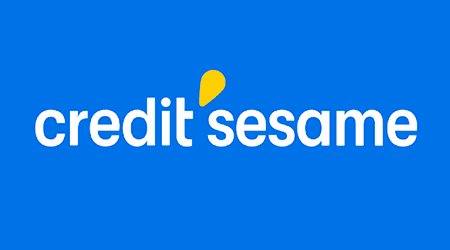
Sesame Cash
Finder score
Credit Sesame is a fintech company offering a prepaid debit card called Sesame Cash, which is backed by Community Federal Savings Bank (CDSB). To start building credit, you must open a Sesame Cash account and sign up for the credit builder product. When you move cash into credit builder, it becomes the security deposit for a virtual Secured Credit Card. Plus, you set the utilization ratio. For example, if you deposit $500 and you want the ratio to be 30%, it's a maximum of $150 with the credit builder account.
Once it's set up and you make purchases with the debit card, Credit Sesame looks for purchases that fit within the credit utilization ratio you set. An amount equal to the outstanding balance is set aside in your Sesame Cash account so you can pay off the balance each month. Sesame also offers automatic pay, so the balance is paid on time and in full each month. Sesame states they report to 'the major credit bureaus' but doesn't say which ones.
Sesame Cash costs $9.99 per month, and there's also a $3 inactivity fee. To waive the monthly fee, you must set up a deposit of at least $500 per month or spend at least $1,000 per month with the Sesame Cash account. To avoid the inactivity fee, there must be monthly movements or purchases at least once within a 30-day rolling period. The inactivity fee and monthly fee are waived for the first month.
| Fee | $9.99 per month |
|---|---|
| Minimum deposit to open | $0 |
| Fee | $9.99 per month |
|---|---|
| Minimum deposit to open | $0 |
Benefits of credit building debit cards
One of the best benefits of credit-building cards is the opportunity to build a better credit history, and usually, that means fewer fees than traditional credit cards.
- Usually no APR. Most credit-debit cards don’t charge interest.
- Fewer fees. Unlike credit cards, most credit-building debit cards don’t charge annual fees — and many don’t charge monthly maintenance fees either.
- The account is secured. Most have some type of security, whether it be a linked bank account or a security deposit, making them a safer way to borrow due to the lower risk of accumulated debt you can’t repay.
- No credit check. The majority don’t require a hard credit pull, and if they do, the requirements are easier to meet than traditional credit cards or loans.
- Credit-building loans create a nest egg. These products are like savings accounts that you’re required to contribute to, and once the term is up, you get access to the funds.
What to watch out for
Credit-building products are considered safer than traditional borrowing methods, but with that safety comes some downsides.
- Low spending limits. Because these credit-building debit cards often require a security or deposit, the spending limits are typically much lower than traditional credit cards.
- Often requires linked bank accounts. Most require you to link an existing bank account, and most require you to open a specific checking account to qualify.
- Check where they report. Some credit-building products don’t report to all three credit bureaus. For example, Affirm only reports payments to Experian.
- Credit building loans take time. Unlike traditional installment loans, credit-building cards with loan installments won’t let you access funds until the term is over.
Who are credit-building cards best for?
Credit-building debit cards are best for anyone who wants to start improving their credit history, and many are often designed for college students or young people who are new to borrowing. Most of these debit-credit cards don’t require a hard credit pull, so your credit history isn’t a factor during the application process.
But you’ll need a security deposit or a linked bank account that’s funded for credit-building debit cards to actually work. They won’t build credit on their own — you have to use the card so that repayments get reported to the credit bureaus.
These cards aren’t designed for large purchases, earning cashback rewards or emergencies. They’re not made for seasoned borrowers who already have regular credit cards, either. If you’re a student in need of a regular credit line, but your credit score isn’t up to par, consider looking at student credit cards instead as they tend to have more lax credit score requirements than regular credit cards.
How credit-building cards compare to traditional cards
Both can help you build a credit history, but overall, debit-credit cards are likely to have fewer fees.
| Type of card | Credit check | Charges interest | Annual fee | Late fees |
|---|---|---|---|---|
| Credit-building debit cards | Rarely | No | Rarely | Rarely |
| Secured credit cards | Yes | Yes | Usually | Usually |
| Unsecured credit cards | Yes | Yes | Usually | Usually |
What’s the catch?
There aren’t many downsides to debit-credit cards. Many of them lack interest charges, late fees and hard credit pulls. Credit-building debit cards are worth it if you want to build your credit score.
But just like other borrowing options, credit-building credit cards could still harm your credit. While they don’t usually charge late fees, a late payment can be reported to the credit bureaus and harm your credit score. While they’re called credit building products, it’s up to you to maintain a positive payment history to actually improve your credit score.
Building credit takes time — often years of hard work. While credit-debit cards can help push you in the right direction, they’re also not the only way to boost your credit history — see more tips on how to build your credit.
How to build credit for free
Most methods of credit-building involve taking on credit — personal loans, credit cards, auto loans and so on — and those tend to include interest charges. If you want to build credit for free, there are a few secured cards with no monthly or annual fees, and some free rent reporting services.
- Secured credit cards. There are a few free credit-building debit cards like the Step card and the Fizz card. Neither charge monthly fees, annual fees or interest charges. If you go with a traditional secured card that is backed by a security deposit, you can choose one that has no annual fees and just be sure to pay your owed balance off each billing cycle to avoid APR.
- Rent reporting. Some rent-reporting services charge monthly fees, but a few like Self and Experian Boost don’t charge anything to report your rent payments.
- Subscription reporting. While most subscription reporting services do have some sort of monthly fee, there’s one that stands out for its very long trial period: Grow Credit. This service can report your subscription payments and its base plan called Build is free for 12 months and you can report up to $17 a month in subscriptions.
Frequently asked questions
Can I use a prepaid card to build credit?
No, prepaid debit cards don’t build credit history, and neither do traditional debit cards. Prepaid and debit cards aren’t a form of credit so they’re not added to credit reports. However, debit-credit cards are similar to debit and prepaid cards in that you can only spend what you’ve deposited in the linked account. Debit-credit cards are also a form of credit, so payments can be reported to the major credit bureaus to build credit history.
More guides on Finder
-
Tomo Credit Card review
The Tomo credit building card is currently on a waitlist, meaning it’s not available right now. Compare features and other options here.
-
Kovo Credit Builder review
Kovo Credit Builder helps you build your credit history for around $10 per month and reports to four credit bureaus. Many competitors do not.
-
How to build business credit
It’s a little different from regular credit scores — here’s how to build business credit.
-
7 best credit-building apps
The best credit-building apps include Self Credit Builder, Step, Fizz, Cred.ai, Cleo, Grow Credit and Credit Karma Credit Builder.
-
Lexington Law credit repair review
Lexington Law is a credit repair company, but it carries a poor reputation.
-
Credit repair companies: Is it worth paying someone to fix your credit?
Credit repair is something you can do yourself, so it may not be worth the cost.
-
CreditStrong review
Credit Strong is a division of Austin Capital Bank and offers many credit-building loans to choose from, but they can be costly.
-
Bright Money app review
Bright can help pay down credit card debt from multiple angles.
-
Cheese Rewards Checking review
A digital bank built for Asian-Americans. Earns up to 10% cash back and up to 3% APY.
Ask a question

